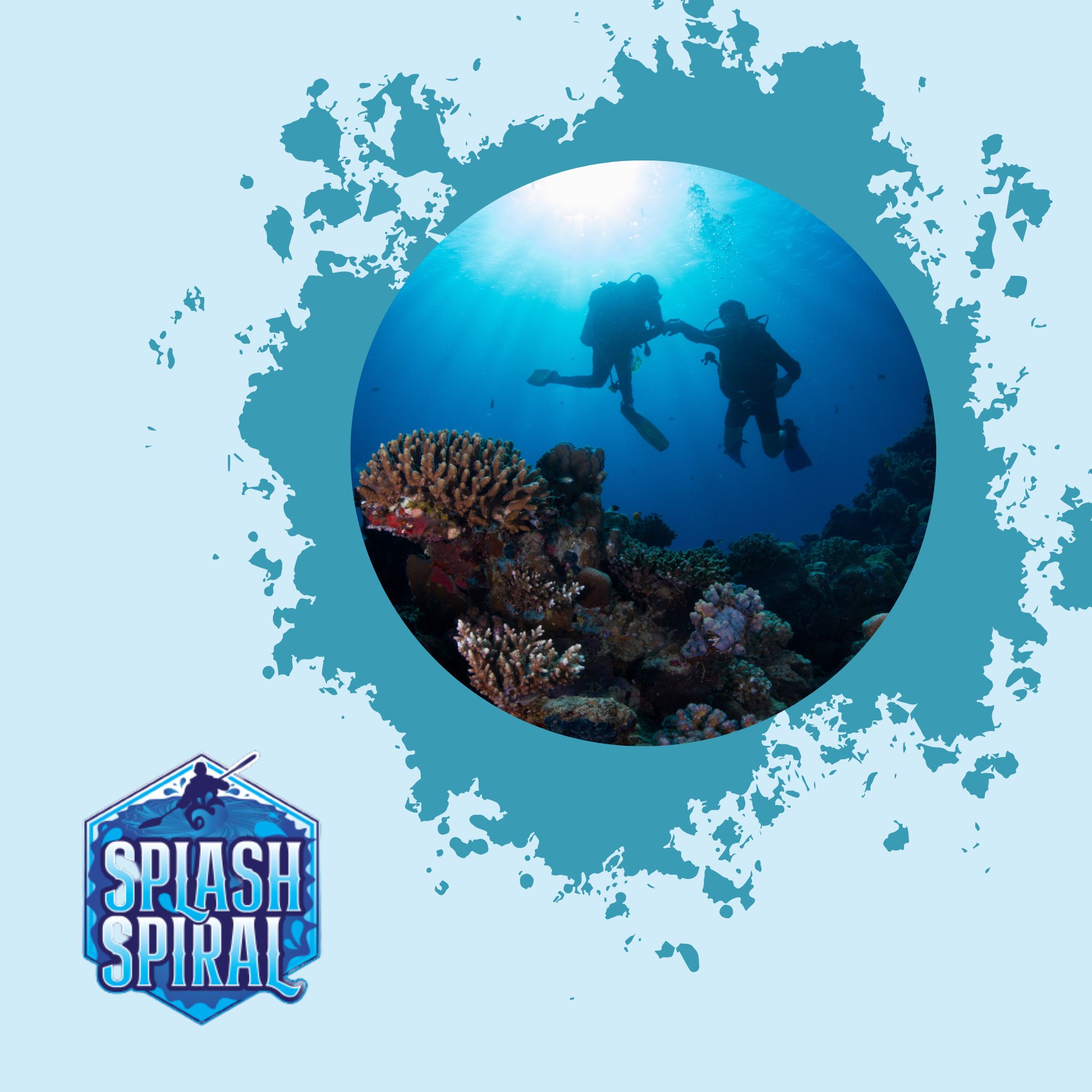
Scuba diving is a thrilling and adventurous activity that has been gaining popularity over the years. It allows people to explore the underwater world, witness marine life up close, and experience a unique sense of weightlessness. Scuba diving is definitely not for everyone, but for those who are willing to take the plunge, it can be one of the most exhilarating experiences imaginable.
The Thrill of Scuba Diving
Scuba diving offers an unparalleled adrenaline rush. The feeling of sinking beneath the surface of the water and exploring a whole new world can be both exhilarating and humbling. It’s easy to feel like a small fish in an endless ocean as you gaze upon schools of brightly colored fish, glide gracefully through coral reefs, or marvel at shipwrecks that have become home to countless sea creatures.
The Underwater World
The underwater world is vastly different from life on land. The colors are brighter, everything moves in slow motion, and sounds are muffled due to the surrounding water.
When scuba diving, you get to explore an ecosystem so unfamiliar that many people never even realize it exists. From colorful fish darting around coral reefs to majestic sea turtles gliding effortlessly through open water, there’s no shortage of breathtaking sights to see.
The Importance of Proper Training
While scuba diving is undoubtedly thrilling and rewarding, it also comes with its fair share of risks. That’s why proper training is essential before venturing into open water.
A beginner’s scuba course will teach you everything from basic safety skills to proper equipment usage and emergency procedures. Scuba diving provides an opportunity for adventure enthusiasts to explore a whole new world underwater full of exciting marine biodiversity in which proper training is essential before venturing into open waters.
Getting Started
Research Local Scuba Diving Centers and Choose One that Suits Your Needs
Before diving into the world of scuba diving, it is important to do your research and find a suitable diving center. Not all diving centers are created equal, so take some time to look into each one’s reputation, experience level, certifications and location. You want a center that is reputable, safe and has experienced instructors who can provide you with the best education possible.
Sign Up for a Beginner’s Scuba Diving Course
Once you have found a reputable scuba diving center that suits your needs, sign up for a beginner’s course. This will provide you with the necessary knowledge, skills and safety protocols needed for scuba diving.
The courses usually consist of classroom sessions where you learn about equipment maintenance, underwater communication techniques, hand signals and dive planning. After completing the course work, you will have an opportunity to practice and apply what you learned during confined water sessions before heading out to open waters.
Get Familiar with the Equipment and Learn How to Use It Properly
Scuba gear can be expensive but is essential when starting out. You don’t need to purchase all your equipment right away as many centers offer rentals. During your course or training sessions get familiarized with all the essential gear such as wetsuits or drysuits (depending on your location), fins, mask, regulator and BCD (buoyancy compensator device).
You will learn how each item functions as well as what adjustments may be required in various situations while underwater. Get comfortable with them on land before venturing into open waters!
Physical PreparationEnsure you are physically fit enough to dive by consulting with a doctor.
Before jumping into the water, it’s important to make sure your body is up to the challenge. Scuba diving requires good overall health and fitness levels, so it’s recommended to consult with a doctor before starting any diving course. Your doctor can assess whether you have any medical conditions or physical limitations that could affect your safety underwater. Practice swimming and snorkeling to build up your endurance.
Swimming and snorkeling are great ways to build up your endurance for scuba diving. These activities will help you get accustomed to being in the water, increase your lung capacity, and improve your cardiovascular fitness. Try swimming some laps at a pool or practicing snorkeling at a nearby beach before taking on scuba diving. Learn basic breathing techniques to help you stay calm underwater.
Breathing is key when it comes to scuba diving. It’s important not only for keeping you alive but also for staying calm and relaxed underwater.
Therefore, learning basic breathing techniques is crucial for anyone who wants to enjoy their time in the water safely. Practice deep breathing exercises outside of the water before heading into any dive so that once there, you’ll feel more relaxed and comfortable in what can be an unfamiliar environment.
Safety Precautions
Always Dive with a Buddy or in a Group
Scuba diving is an exciting activity that can also be dangerous if not done properly. One of the most important safety precautions that every diver should follow is to always dive with a buddy or in a group.
This is because having someone watching your back can help prevent accidents and provide assistance in case of an emergency. Diving alone is never recommended, no matter how experienced you are.
Follow All Safety Guidelines Provided by Your Instructor or Dive Center
Another crucial safety precaution for scuba diving is to always follow the safety guidelines provided by your instructor or dive center. These guidelines are designed to keep you safe and minimize any potential risks involved in scuba diving. Make sure you understand all the rules and ask questions if anything is unclear.
Be Aware of Potential Hazards Such as Strong Currents, Marine Life, and Changes in Weather Conditions
Scuba diving can expose you to various hazards, such as strong currents, marine life, and changes in weather conditions. It’s important to be aware of these potential hazards before heading into the water. You should know how to handle these situations and have a plan for dealing with them if they occur.
Always stay alert during your dive and keep an eye out for any signs of danger around you. While scuba diving can be an exhilarating experience, it’s important to take all necessary precautions before jumping in the water.
Always remember to dive with a buddy or group, follow all safety guidelines provided by your instructor or dive center, and be aware of potential hazards such as strong currents, marine life, and changes in weather conditions. By following these simple but essential tips for staying safe while scuba diving start practicing this fantastic activity without worries!
Dive Planning
Plan Your Dives Ahead of Time
When it comes to scuba diving, planning is key. Before heading out on your adventure, it’s important to have a clear idea of the depth, duration, and location of your dive.
Planning ahead can help ensure that you have a safe and enjoyable experience. When choosing a dive site, consider factors such as water conditions, visibility, and marine life.
Look for information about the dive site online or ask your instructor or local dive center for recommendations. Make sure to also check any local regulations or restrictions before diving in.
Check Weather Conditions Before Heading Out to Sea
Checking weather conditions is an important part of planning any scuba diving trip. Strong winds or storms can make diving dangerous and visibility poor. Be sure to check weather reports for the area where you plan to dive in advance.
If you’re unsure about whether it’s safe to dive due to weather concerns, don’t hesitate to ask your instructor or local dive center for advice. They may be able to suggest an alternative location or time when the weather is more favorable.
Keep Track of Your Air Supply and Plan for Safety Stops During Ascent
Monitoring your air supply is essential while scuba diving. Keep track of how much air is left in your tank throughout the dive by checking your pressure gauge regularly.
Make sure you also plan for safety stops during ascent – these are brief pauses at certain depths that allow excess nitrogen in your body tissues to safely escape before reaching the surface. Be aware that different depths require different amounts of time for safety stops – some dives may require multiple stops at various depths before reaching the surface safely.
Talk with your instructor about how long each stop should be depending on your specific situation. By planning ahead and taking necessary precautions during dives, you can ensure a safe and enjoyable experience while exploring the wonders of the underwater world.
Underwater Experience
Enjoy the Beauty of the Underwater World While Being Mindful of Marine Life and Their Habitats
As you descend into the depths, it can be easy to get lost in the beauty of the underwater world. From vibrant coral reefs to schools of tropical fish, there is so much to see and explore.
However, it’s important to remember that you are a guest in their world and should treat it with respect. Be mindful of marine life and their habitats by avoiding touching or disturbing them in any way.
This includes not picking up or moving anything from its natural location. By respecting their environment, we can ensure that future generations have the opportunity to experience its magnificence as well.
Take Pictures or Videos to Capture Memories of Your Experience
One of the best ways to remember your scuba diving experience is by taking pictures or videos. Not only will they allow you to relive your adventure, but they can also serve as a reminder of how beautiful our planet truly is.
When taking pictures or videos underwater, be sure not to disturb any marine life in the process. You can use specialized gear like underwater cameras or housings for your phone’s camera to capture high-quality footage without putting yourself at risk.
Conclusion
Scuba diving is an adventurous activity that allows us to explore a whole new world beneath the surface. By starting with a beginner’s course and following all safety guidelines provided by your instructor or dive center, you can dive into this thrilling experience with confidence. Remembering proper physical preparation, safety precautions such as always diving with a buddy and being aware of potential hazards such as strong currents etc., planning your dives ahead for example ensuring you have checked weather conditions before heading out sea which may affect your visibility alongside keeping track of air supply will enable one enjoy themselves throughout.
Through scuba diving, we can gain a better appreciation for marine life and their habitats. We can also capture memories that will last a lifetime and inspire us to protect our planet’s natural wonders.







